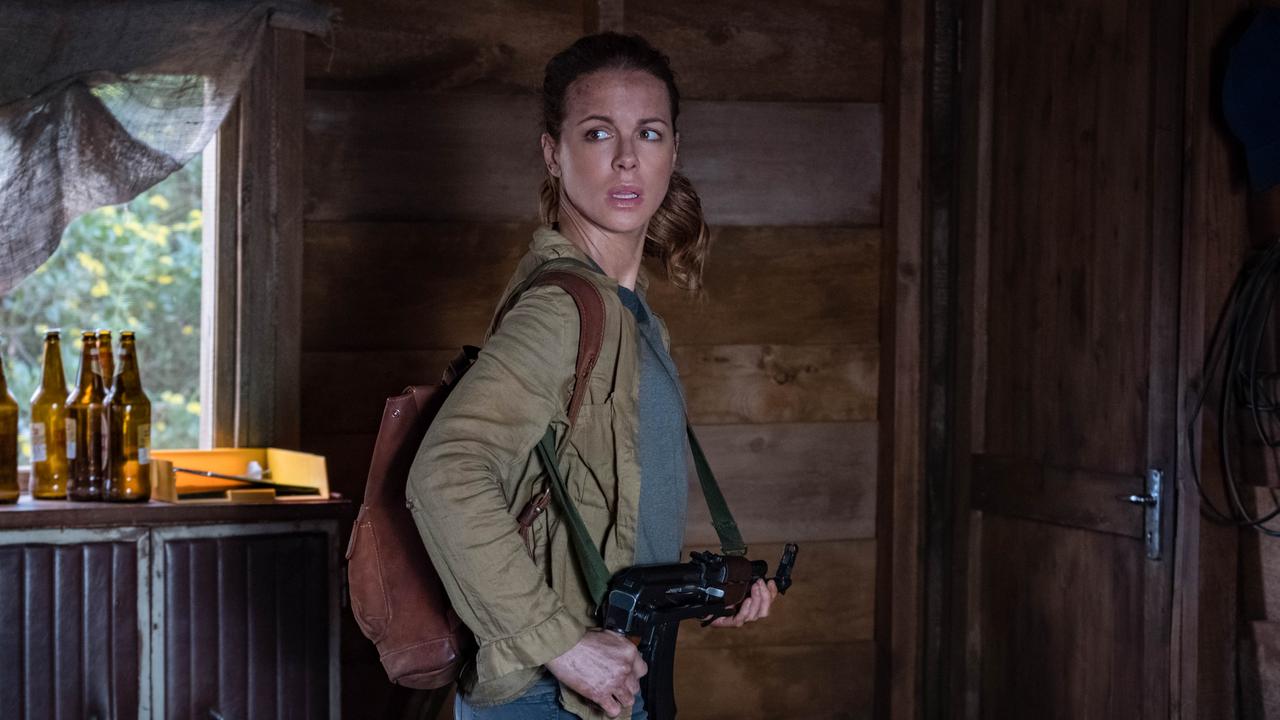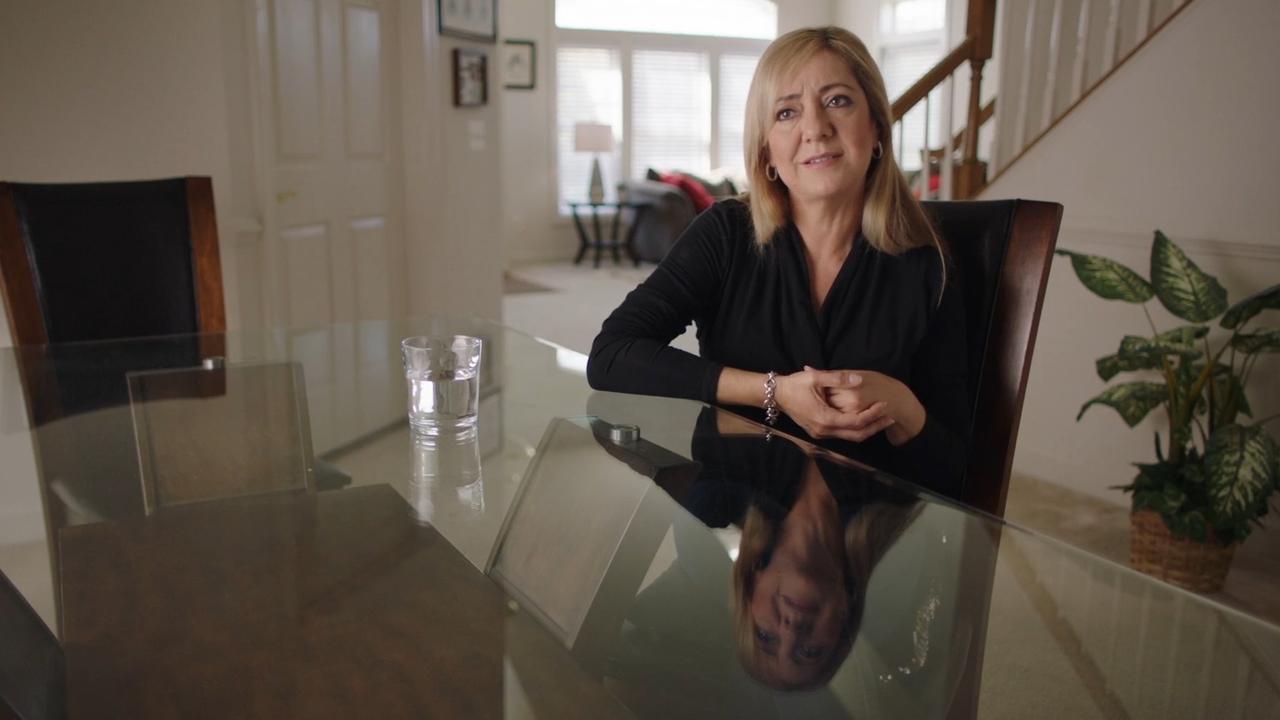Samson & Delilah: the amking of a masterpiece
I'M usually disdainful of behind-the-scenes film documentaries that you find on special edition DVDs and occasionally see popping up on television.
I'M usually disdainful of behind-the-scenes film documentaries that you find on special edition DVDs and occasionally see popping up on television. They're typically hagiographic promotions, carefully sanitised and with the bastardry of directors and wilfulness of actors removed.
Beck Cole's Making Samson & Delilah is a rare gem; a gorgeous short feature documentary about the making of what's possibly becoming our most famous film. She tells her story exactly as she discovered it, unnarrated and unadorned.
Samson & Delilah is, of course, Warwick Thornton's debut feature (made after several award-winning short films), released in April and rapturously received when it premiered at Cannes this year, winning the Camera d'Or.
Within weeks of being released the film, which had a budget of $1.6 million - Thornton also wrote the script and was the cinematographer - became only the third Australian film to crack the $3 million mark at the local box office in the past three years. The film has opened in New Zealand and been sold to France, Britain, Israel, Benelux, Colombia, the Middle East and Portugal. And Samson & Delilah recently became our official entry for best foreign film at the 82nd Academy Awards.
It's about two Aboriginal teenagers, brilliantly played by untrained actors Rowan McNamara (Samson) and Marissa Gibson (Delilah), who tragically attempt to find their way out of lives riddled with poverty, addiction and abuse. The film, almost a fable really, has a kind of tongue-tied beauty. It is deliberate, weighty and is conducted in a wonderful beguiling kind of pantomime.
Cole's film is the biography of Thornton's movie, told from the inside, and it's an incisively fashioned account of the making of a classic piece of Australian art. But it's also a short feature film in its own right, often touching and very funny. "People don't really know how to take this doco," Cole says. "It stands alone in that way with its own drama."
She deliberately constructed the vast amount of candid material so her film would work for those viewers who haven't seen Samson and Delilah itself. "I suppose it's really a film about the making of a film, not just an account of how another film was made," she says.
Making Samson & Delilah premieres on ABC1 on Thursday after Thornton's film screens tomorrow night. It's a good piece of programming and a good investment for the broadcaster: Samson & Delilah is the first feature film the ABC has been involved with in more than a decade (the network participated financially at script stage).
Cole's candid doco charts the extraordinary journey of the two lead first-time actors. She intimately follows them from the first casting call in the red dust of Alice Springs to receiving worldwide critical acclaim for their performances and standing ovations at Cannes.
Both are inquisitive about performance and its magical properties. Mannered, moody and marvellous, each in a different way asks how acting comes about and how it's distinct from life, and what it reveals of personalities and what it betrays.
An accomplished director and writer (First Australians, The Circuit) herself, Cole understands there is often more drama around the peripheries of film shoots than what ends up on camera. And as Thornton's partner (they are based in Alice Springs) she obviously had an early, intense connection to the story: "From the very first time Warwick told me the idea for his film I was yelling out, 'And I'm doing the doco'."
More than 55 hours of footage was shot on a small JVC HDV camera, which Thornton won in short-film competition Flickerfest for his movie Nana.
The doco crew consisted of Cole and a sound recordist. After that she "went solo, lone-ranger style" as she worked towards the film's international distribution. There were few luxuries. "We bought an old white Ford Falcon Sapphire for the doco crew, which was affectionately called doco car," Cole says. "Doco car did a sensational job until it cracked its head on the way to the Alice Springs outdoor premiere in March this year."
Her film, although affectionate, doesn't pull any punches and is an honest look at the pressures of filming on McNamara and Gibson and how they adapt and handle it.
They might be untrained, but as Thornton says several times, they have lifelong experience as community kids. "I'm not going to fill their heads with all sorts of Samson & Delilah back-story because they own this film," Thornton says as they awkwardly start rehearsing.
"Is it what you thought it would be like?" Cole asks McNamara at the end of the first day's shoot in what appears an attempt at a formal interview, the young actor seated in a chair facing the camera. "Yes," he says abruptly, after a pause. "Is there anything else you would like to say?" she asks. "Nah," the skittish boy replies and then scuttles away.
Off camera he's so wired he's like a kinetic artwork. His cavorting body is never still, which makes him fascinating to watch, but he's obviously a total handful and sometimes even the usually unflappable Thornton almost loses patience. On camera though, McNamara seems to summon up inspiration somehow, and his body language is remarkably expressive.
Gibson, who often tires of her co-star's moodiness and sense of shame, finds deeply felt moods and emotions from within. From the start she projects a remarkably mature sense of geniality. She is vivacious, animated and resilient.
"I'm not going to do acting later on," Gibson rather flirtatiously says to Cole's camera towards the end of the shoot. "It's too embarrassing." But you know she doesn't mean it, or hope not.
Cole's portrait study of Thornton, a cigarette rarely absent from his mouth, is also compelling. In his laconic, street-smart style, he articulates thoughts on the director's pivotal creative and administrative role. He patiently dispenses permission, advice and home psychology with the tranquillity of a country doctor, never really fazed and secure in his vision.
When he's not lugging a huge Panavision camera around on his shoulder or changing the unit vehicle's tyres, Thornton tends to find somewhere to lie down, a couch usually, from which he tosses asides to Cole.
"Samson & Delilah is a film with a big name and no blankets," he says at the start, joking about the context of the film's title in which the Aboriginal mourning tradition is equated with the biblical story. It's a nice comic beginning to Cole's film but as we get to know Thornton he presents as an intense man: impersonal, even indifferent, disassociating himself from emotional flux in order to maintain his equilibrium.
As director he eschewed what he calls the "the madness of conventional filmmaking": the big crews, the trucks, and the process the novelist Martin Amis once called "relay yelling". Instead, Thornton worked with the bare minimum and, especially, "a crew chosen for their hearts, not their CVs".
The much-remarked-upon absence of dialogue (some critics found the effect mannered and obscure) was obviously a crucial choice in Thornton's accomplishment.
There are few sound takes and most of Samson & Delilah is edited to a largely country and western score. One of Thornton's aesthetic achievements is the way he develops music and random ambient noise as the film's language to counterpoint his visual style.
With almost no recorded sound, Thornton is able to direct his actors as he shoots them, talking them though his tightly realised 80-page script. He's tough with them, cajoling, urging and reminding them of what they have rehearsed and then quietly supporting of their choices. Sometimes he berates them gently if they forget something crucial. He keeps the camera rolling as he asks them to repeat an action, coaching them, even as he captures the impromptu, unscripted moments. It's mesmerising to watch.
More than anything, Cole's film is an elegy to the making of cinema in this country. She reveals the moviemaking process to us, often seemingly makeshift and impromptu, and in so doing demystifies the process that has created a celebrated piece of cinematic art.
It's hard to believe that this happily raucous bunch from Alice Springs has produced such a stunning piece of magic on the run and with such love. Cole captures the random and fleeting intimacies of moviemaking reality in this country in a way few other filmmakers have done.
The experience of Samson & Delilah is a parallel universe to Ten's slick, knowing new series White Collar, which also premieres this week. This is an elegantly produced, high-paced crime caper show with echoes of the late 60s TV series starring Robert Wagner, It Takes a Thief. This was itself inspired by the 1955 Cary Grant movie directed by Alfred Hitchcock; both titles allude to the saying it takes a thief to catch a thief.
In White Collar criminal mastermind Neal Caffrey (Matt Bomer), teams up with FBI investigator, Peter Burke (Tim DeKay), the smart cop who locked him up. This is after the slick Caffrey, having somewhat inexplicitly escaped from a maximum-security prison, is again apprehended by Burke.
Caffrey, obviously an imaginative and resourceful villain, reluctantly agrees to help investigate white-collar crimes (committed with brains not brawn) in return for being allowed his partial freedom. This allows him to buy time as he attempts to discover what has happened to his girlfriend, whom he believes is in deep trouble (cue the other underlying, continuing plot arc).
In the pilot episode they unconventionally track down a ruthless and devious counterfeiter known as the Dutchman.
Bronwen Hughes (Burn Notice, Breaking Bad) directs the pilot, and brilliantly done it is, too. White Collar is an exuberantly showy exercise in technique and style. More than most recent TV series it privileges gloss, atmospherics and camerawork.
The production design and especially the cinematography and direction are clearly meant to be noticed and appreciated on their own burnished terms.
From the beginning of the first episode the pace and rhythm of the drama is achieved in a particularly conspicuous way. The show's stylised editing features flash-cuts, jump-cuts, and the stirring together of varied film stocks, colours and speeds.
It's fabulous to watch even if the story - outsider forced to work within the system - and the odd-couple partnership are familiar. The plot line is generically linear and like most formulaic shows the interest will be in just what twists and turns the writers can wittily spin out of the intricacies of each episode's mysteries.
Samson & Delilah, Sunday, 8.30pm, ABC1
White Collar, Wednesday, 9.30pm, Ten
Making Samson & Delilah, Thursday, 9.35pm, ABC1


